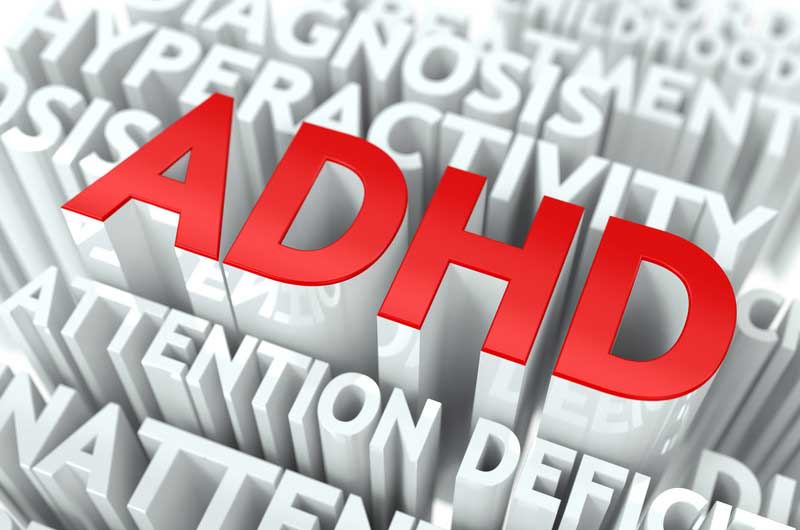Attention Deficit Hyperactivity Disorder (ADHD) not only affects cognitive functions but also plays a significant role in emotional regulation and social interactions. Individuals with ADHD may face challenges in understanding and managing their own emotions, as well as navigating complex social situations. Fostering emotional intelligence is essential for promoting social competence in individuals with ADHD. This article explores the intersection of ADHD and emotional intelligence, providing insights into the challenges faced and strategies for developing emotional awareness and effective social skills.
Understanding the Emotional Landscape of ADHD:
Emotional Dysregulation:
ADHD is often associated with emotional dysregulation, marked by intense emotional responses, impulsivity, and difficulty modulating emotional reactions. These challenges can impact relationships and social interactions.
Impulsivity and Social Interactions:
Impulsivity, a core symptom of ADHD, can manifest in social situations as impulsive comments or actions. This may lead to misunderstandings and strained relationships, affecting social competence.
Sensitivity to Rejection:
Individuals with ADHD may be more sensitive to perceived rejection or criticism. Difficulty handling rejection can contribute to social anxiety and impact the development of healthy social bonds.
Executive Function and Social Skills:
Executive function deficits in ADHD, such as difficulties with planning and organizing, can extend to social skills. Challenges in initiating and maintaining conversations, taking turns, and interpreting social cues may arise.
Building Emotional Intelligence in Individuals with ADHD:
Emotional Awareness:
Cultivate emotional awareness by helping individuals recognize and label their emotions. Encourage the use of feeling words to express emotions accurately.
Mindfulness Practices:
Introduce mindfulness practices to enhance self-awareness and emotional regulation. Mindfulness exercises, such as deep breathing and body scans, can help individuals with ADHD stay present in the moment.
Social Skills Training:
Provide explicit social skills training. This may include coaching on active listening, interpreting non-verbal cues, and understanding the perspectives of others.
Role-Playing Scenarios:
Engage in role-playing scenarios to practice social interactions. This hands-on approach allows individuals with ADHD to navigate common social situations in a supportive environment.
Empathy Development:
Foster empathy by encouraging individuals with ADHD to consider others' feelings and perspectives. Discussing characters in books, movies, or real-life situations can enhance empathy development.
Recognizing Social Cues:
Work on recognizing and interpreting social cues. Use visual aids, such as cue cards or diagrams, to help individuals understand body language, facial expressions, and tone of voice.
Teaching Problem-Solving:
Teach problem-solving skills to address social challenges. Encourage individuals to think through potential solutions and consider the consequences of different actions.
Executive Function Strategies:
Implement executive function strategies in social contexts. Breaking down social tasks into manageable steps and creating routines for social interactions can help individuals with ADHD navigate social situations more effectively.
Social Competence in Different Settings:
School Environment:
Collaborate with teachers to create a supportive environment at school. This may involve implementing social skills programs, providing structured social opportunities, and educating peers about ADHD.
Home Environment:
Foster open communication at home. Create a safe space for individuals with ADHD to express their emotions and discuss social challenges. Encourage family activities that promote positive interactions.
Peer Relationships:
Facilitate positive peer relationships. Encourage the development of friendships by organizing social activities, fostering shared interests, and providing guidance on navigating social dynamics.
Community Involvement:
Promote community involvement to broaden social experiences. Involvement in clubs, sports, or other extracurricular activities can provide opportunities for skill-building in diverse social settings.
Addressing Coexisting Conditions:
Anxiety and ADHD:
Address coexisting conditions, such as anxiety, which commonly co-occurs with ADHD. Anxiety can intensify social challenges, and targeted interventions, including cognitive-behavioral therapy, may be beneficial.
ADHD Medication and Emotional Regulation:
Explore the role of ADHD medication in supporting emotional regulation. In some cases, medication prescribed for ADHD can contribute to improved emotional stability, positively impacting social interactions.
Supporting Self-Esteem and Resilience:
Strengths-Based Approach:
Adopt a strengths-based approach to emphasize individual strengths and talents. Focusing on what individuals with ADHD excel in contributes to a positive self-image.
Celebrating Achievements:
Celebrate achievements, both big and small. Recognizing progress in emotional intelligence and social competence reinforces positive behavior and boosts self-esteem.
Counseling and Therapy:
Consider counseling or therapy to address emotional and social challenges. Therapeutic support can provide coping strategies, enhance emotional resilience, and offer a safe space for self-expression.
Encouraging Self-Advocacy:
Encourage self-advocacy skills. Teach individuals with ADHD to communicate their needs, seek support when necessary, and express themselves assertively in social situations.
Educational Advocacy and Awareness:
Educational Advocacy:
Advocate for educational support, including Individualized Education Plans (IEPs) or 504 Plans, that address social and emotional needs. Collaboration with educators is crucial in fostering a supportive learning environment.
Raising Awareness:
Raise awareness about ADHD in educational settings. Educate teachers, peers, and school staff about the challenges individuals with ADHD may face and the importance of fostering a compassionate and inclusive environment.
Conclusion:
Fostering emotional intelligence in individuals with ADHD is a multifaceted process that involves building self-awareness, developing social skills, and addressing coexisting conditions. By implementing targeted strategies, providing a supportive environment at home and in various settings, and collaborating with educators and professionals, individuals with ADHD can enhance their social competence and navigate social interactions with increased confidence and success. Recognizing and celebrating the unique strengths of individuals with ADHD contributes to the development of a positive self-image and resilient social skills.


No comments yet